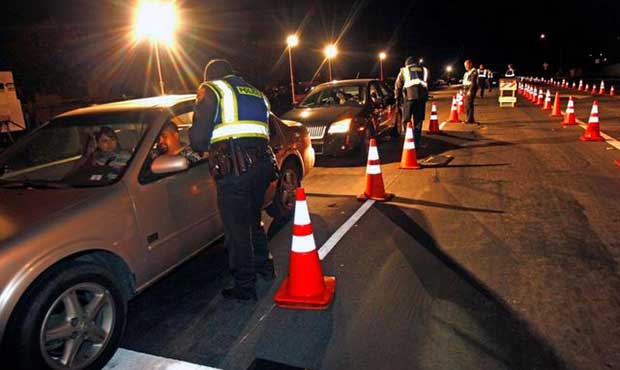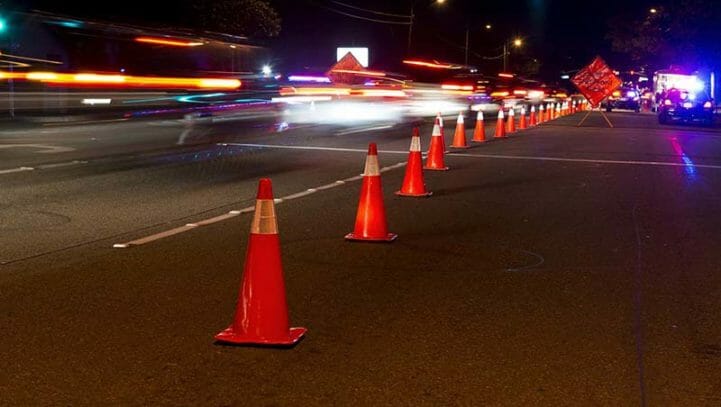Along with holiday gatherings and celebrations also come stepped-up DUI enforcement. There will be DUI Task Forces set up in various jurisdictions during almost every major holiday. Be aware of how they work and what steps you can take to stay safe and out of trouble.
The holiday season is here! The past two years have been undoubtedly difficult for everyone with so many Covid restrictions. Although we’re paying higher prices now, we’re still excited to gather together with our friends and families for some indulgent feasting. And why not? Pants will be on sale soon!
Alcohol Consumption, Absorption, and Effects
If you’re imbibing in a cheery cocktail or some mulled wine during the holiday season, please remember to be safe. Be sure to have a sober driver—and not just for you but also for those celebrating with you.
Like we discussed in our Thanksgiving blog, holiday feasting generally means throwing your digestive system into overdrive, so your body may not be absorbing and eliminating alcohol as it normally does. Having more to drink is not ‘balanced out’ by eating more to ‘absorb’ the alcohol. Food added to alcohol consumption just gives your liver more work to do.
Don’t Meals Minimize the Affect of Alcohol?
As you eat and drink in increased holiday quantities, your body will likely take longer to process what is ingested. Although many think that their bodies will “soak up” the alcohol consumed if there is food in their stomachs, this isn’t the case. You can’t eliminate the calories in chocolate by also eating celery.
Typically, our bodies absorb and eliminate alcohol at a constant rate that is particular to the individual. However, when adding food to the mix, you’re giving your body another task to work on. That is, something else to digest and metabolize.
Certain foods are easier for the body to break down while others are more difficult. But the point is; your liver does the majority of the work when it comes to proteins, fats, and alcohol.
Thus, when you’re giving your liver more work than it is accustomed to, your absorption and elimination rates are slower. You won’t feel the effects of alcohol as quickly. Plus it will take your body longer to get rid of the alcohol, fats, and proteins. So while you might think you feel okay to drive, you really are not.
That leads us to another holiday tradition: DUI task forces.
What is a DUI task force?
Let’s start with what a DUI task force is not. A Task Force is not a checkpoint where the police have set up a blockade and stop every car.

Instead, the DUI task force is sometimes called a “saturation patrol.” This means that there are many more police officers on duty than normal in order to fill an area.
Police will be looking to pull over drivers that commit any type of traffic violation.
- Speeding?
- Failing to stay in one lane?
- Turning into the wrong lane?
- Illegal U-Turn”
All of these will likely get you pulled over and then investigated for driving under the influence.
Where Are DUI Task Forces Usually Located?
The task forces are generally focused on heavily populated nightlife areas. These include places such as Old Town Scottsdale, downtown Chandler, and Gilbert, downtown Phoenix. Also anywhere there’s a sporting event, like Westgate in Glendale or along Mill Avenue next to ASU in Tempe.
If there are a lot of people and alcohol is for sale, there will be officers nearby.
When are DUI Task Forces Usually Conducted?
Most major holidays pretty much guarantee a DUI task force.
From Thanksgiving through New Year’s, there is a continuous task force ready to pull people over.
But that’s not all:
- St. Patrick’s Day
- Cinco de Mayo
- Memorial Day
- 4th of July
- Halloween
The holidays listed above are all prime DUI task force holidays.
Expect a larger police presence:
- When more people are traveling
- holidays off of work
- and BBQs or other get-togethers
- placews where large numbers of people will be drinking
You’ll also note that news agencies often report the number of DUI arrests after these holidays. They also make special comments about the number of Extreme DUI arrests—DUIs where the person is believed to have a Blood Alcohol Level (BAC) of .150 or greater.
How are DUI Task Forces Funded?
You might be thinking; so if there are a bunch of police officers working overtime, where does that money come from to pay them? Are these my tax dollars at work?
The Arizona Governor’s Office of Highway Safety allocates grants to law enforcement agencies across the state. If they conduct increased DUI patrols and DUI enforcement they can receive additional funding.
And where does the Governor’s Office get money to give to police? That comes from a variety of sources: federal funding, Arizona MVD registration fees, and DUI Abatement Funds.
We’d like to highlight that last one for a moment here.
The DUI Abatement Fund, authorized by A.R.S. § 28-1304, is a special, mandatory fine that is imposed on people who get convicted of Extreme DUIs or Felony DUIs here in Arizona.
Now, if you’re thinking, “wait a second, so people who get DUIs pay special fines that are then sent to the Governor’s Office of Highway Safety, and then that money is sent back to law enforcement to pay overtime for more DUI enforcement.
So they can arrest more people for DUIs to pay more special fines?” Yep, that is exactly what is happening here.
What Are Arizona’s DUI Penalties?
It often comes as a shock to people to learn that Arizona has the harshest DUI penalties in the nation. Even if a person doesn’t even have a previous speeding ticket, a first-time DUI conviction will result in at least:
- a jail sentence
- alcohol screening and treatment program
- fines and fees
- a driver’s license suspension
- and the use of an ignition interlock device.
And if you’ve had a prior DUI conviction in the past seven years, there could be much more severe consequences. Be aware, if you get a DUI and have kids under 15-years-old in the car, it could be filed as an Aggravated DUI. Aggravated DUI is a felony!
How Do I Avoid Getting Arrested for DUI with All the Extra Police on the Roads?
In 2020—even though we were dealing with closures due to the Covid-19 pandemic—more than 27,500 people were arrested on suspicion of DUI through November of 2021, and more than 27,800 people had been arrested.
Don’t let yourself or your loved ones add to that number!
Being careful over the holidays is the best bet to avoiding a DUI charge.
First and foremost, don’t drive if you are impaired to the slightest degree by alcohol or drugs!
Remember to keep track of your number of drinks and control your intake. This is especially important at the family dinner table. Don’t rely on online calculators or apps to estimate your BAC, as we have previously warned.
They aren’t 100% reliable and if you aren’t sure if you are safe to drive, don’t take the risk. Again, just because you feel okay doesn’t mean that you’re under the legal limit!
Use a Designated Driver or Rideshare. Obey the Laws, and Know Your Rights
Being safe, planning ahead, and using a designated driver or a rideshare program like Lyft or Uber are always smart options.
Although it should go without saying, if you’re the designated driver, make sure you’re driving sober. And yes, we all have seen the Lyft and Uber surge prices, but they’re far less than DUI fines would be.
Consider adding a local taxi company number into your phone, too, since they have constant rates. The more options you have, the better.
Secondly, avoid getting stopped at all by obeying the traffic laws. If you’re speeding, failing to stay in your lane, or trying to figure out how to get Wham!’s Last Christmas to repeat on your cell phone while driving, police will pull you over. And you can be sure they will be looking for almost any reason to conduct a DUI investigation. If you do get arrested, know your rights and always ask to call or speak to your DUI lawyer.
From The Law Offices of Mark D. DuBiel to all of you, we wish you very happy holidays!





